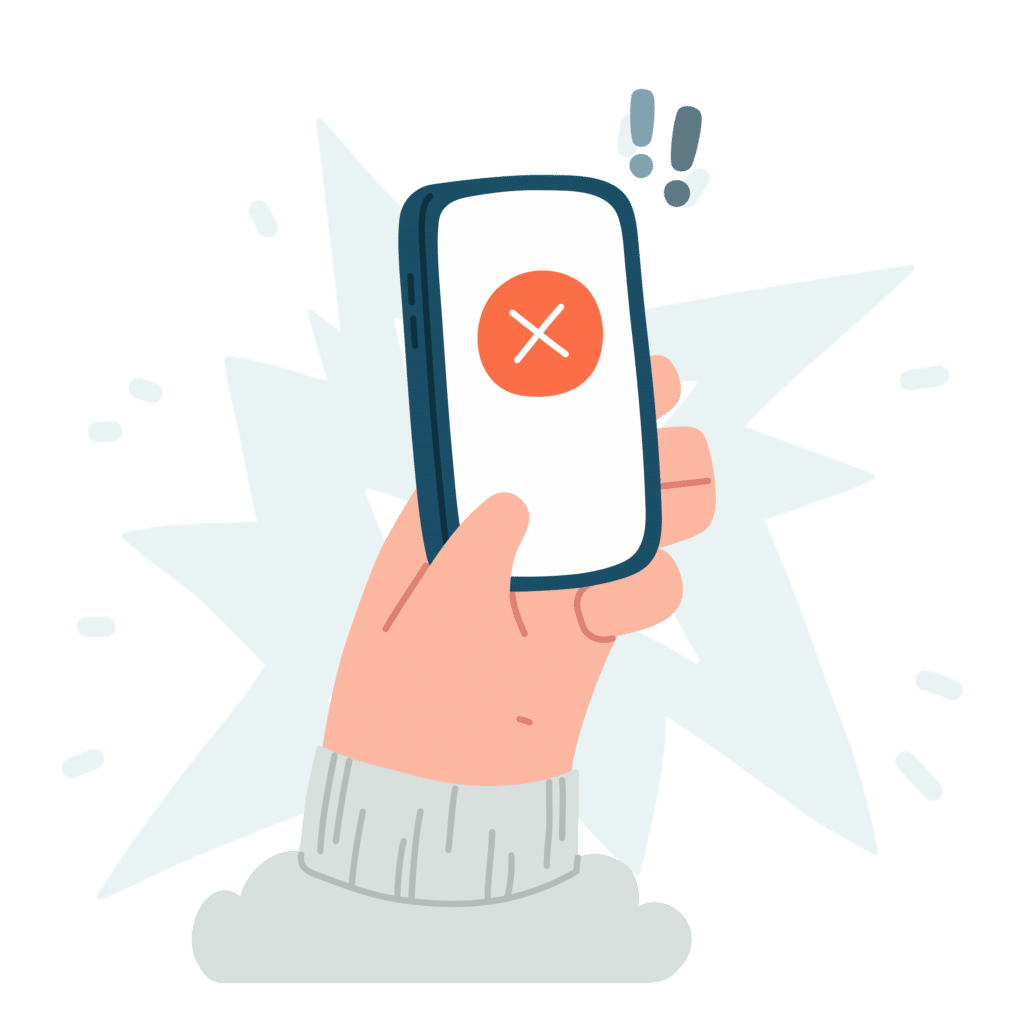Does your teen have a social media account—or maybe three? If your kid is 12 or older, it’s likely they have at least one. According to the National Center for Biotechnology Information, 56% of kids 12 and half years old have a social media account.
But what does that mean for their development? What does it mean for their health? How does it impact how they interact with the world?

Some Not-so-Promising Statistics
To see how social media can impact kids and teens, let’s start with some data on how widespread social media use has become among the youth:
- A study by Pew Research shows that 92% of teens say they’re online daily
- Roughly 45% of teens report being online almost constantly
- 97% of teens ages 13-17 have used social media
- About 75% of teens say they’re active on at least one social media profile
- More than half of teens say are visiting a social media site at least daily
The world is different than when many of us were kids. A constant online presence isn’t something many parents grew up experiencing, or even understanding.
For starters, smartphones were still used by under 50% of the US population until 2013. As of 2021, the number of Americans with a smartphone is 97%.
While you may have grown up with a phone hooked to the wall, always worrying about someone trying to use your dial-up to log on to the internet (queue 90s internet noise), your kids likely will never know the lovely sound of the internet.

They’ve never known a world without touch screens, and Instagram, and the hyper connected world is taking its toll on them.
Even just a few hours a day can start leaving long-lasting negative impacts. Teens ages 12-15 years old who use social media for more than three hours each day may be at increased risk for mental health issues.
Considering that nearly half of teens are online consistently throughout the day, hoping your kid spends only three hours each day on social media may be optimistic. Research even suggests that increased screen time could be linked to attention-deficit/hyperactivity disorder (ADHD).
When teens are allowed to run free on social media, it can have sometime serious negative impacts, but what are the most critical areas, you should be aware of?
Teenage Social Dilemma
Giving your teen the keys to their first car is nerve wracking—making sure they’re always buckled up, never texting while driving, and generally observing the rules of the road. You do this, because you’re aware of the many physical dangers on the road, and you want to make sure they come home safe every day.

Even though most dangers found on social media do not put your kids in physical danger, the mental impact can be just as crippling and detrimental. Just as with the keys to the family mobile, the same level of caution should be used when handing them their first smartphone. Here’s a few of the main areas it’s important to be mindful of as your teen steps into the digital world of social media.
Screen time
This one may feel obvious to some degree, but if your kid has unfettered access to their phone, it typically ends with more apps being downloaded, and much more time being spent on the phone generally.
Set and keep screen time
It’s important to set and maintain limits around screen time, specifically when social media and internet usage is involved. Social media is notoriously good at getting you to keep checking, keep scrolling and keep clicking. Teenagers who have not limits to their time on social media can begin to develop an addiction to social media, potentially access harmful content, or get involved in things that could harm them long term.
Explicit content
Around nine of 10 kids are unwillingly exposed to explicit content, and by age 11 the average kid has already been exposed to pornography. This is an alarming situation that is confronting our kids and their wellbeing. How can you address what your kids see and do about what they see?

Create trust
It’s critical for your kids to know they can come to you when they see or hear something that has alarmed or disturbed them. Let them know, in actions and words, that they can talk to you, and trust that you’re interested in their wellbeing and want to help them navigate the world. This doesn’t mean they won’t receive consequences if they’re using their device in an unsafe way. It means that you’re showing them that you understand the dangers and want to help them find their way.
Set boundaries
Let your kids know what kind of stuff that they may stumble upon while on social media, and using the internet. Explain why it’s harmful, and why it’s not allowed. If you’ve built up trust, you may even be able to talk openly about what they’ve already experienced, or seen, whether on purpose or by accident.
Cyberbullying
Social media is a hotbed for cyberbullying, trolling and the like. In fact, one in three kids have been a victim of cyberbullying.
For some people, hiding behind a username and a screen is all the motivation they need to tear others down. Whether they’re in the same classroom, or across the world doesn’t matter anymore.
Check in with your teen frequently
Start empathy-filled conversations to understand who they’re talking to, and the types of conversations they’re having with their connections online. These conversations aren’t always easy to approach without getting a door slammed in your face, but by approaching it in an understanding and curious way, rather than a dominating and demanding way is critical.

Listen for signs of bullying
Whether done towards your teen, or done by your teen, pay attention to signs of bullying. Sometimes you’ll be comforting them as they navigate a bully. Other times you may be coaching them on the importance of their words on others, and how damaging their potential bullying can be. Try to understand their point of view regardless, and alway make clear that you’re there to help.
Sexual interactions
Social media is such a powerful tool of connection. But just as any tool, it can be used for good or used for bad. If your teen isn’t careful, they can find themselves in very risky circumstances. About one in every five kids has received some kind of sexual solicitation online. Whether it’s adults preying on unsuspecting kids and teens, or peer pressure, there are plenty of pressures our kids are dealing with we’re only starting to understand.
Explain the dangers as plainly as possible
These conversations can be awkward, and uncomfortable for both you and your teen, but they could be some of the most valuable conversations you can have with them in their formative years.
Explaining that not everyone they meet online is going to be honest, is a critical lesson for internet usage. But with 82% of sex crimes starting with social media, it could even save their life.
Don’t shy away from using the actual terms that exist, and explaining their meaning, and how it can happen, including grooming, sexting, sexual exploitation, and the like. The more your kids know before they’re confronted with these extremely risky behaviors, the more prepared they’ll be if they ever are.
Listen and ask
If you’re worried your teen is engaging in risky behavior on social media, it’s important to listen to how they’re referring to people they’re chatting or direct messaging (DMing) with. If there are mysterious new people in their orbit, they may casually refer to them.
Take the time to casually ask who that is, and how they know them. In many cases, the people may be a school friend or a harmless acquaintance, but if you’re still worried about this particular relationship, it could be worth more discussion with them.
It’s important to take an approach that shows your teen that you’re genuinely interested in their life, not prying for information.

Get informed, not overwhelmed
While there are so many dangerous and alarming situations your kids could be exposed to online, it’s also important to remember all the positive social media and the internet can bring. It’s important to set boundaries, pay attention and work to help them navigate this world, but it’s also valuable to help them enjoy all the benefits the technology brings.
Don’t focus entirely on the bad, as it may create an environment of fear around social media and technology. Try to ocus on the good that exists, and address the bad when you feel it’s relevant. More than anything, know you and your teen are not alone. Every family is navigating similar issues, and there are plenty of great resources to help.
Gabb Family Resources
Beyond creating kid-safe technology for the changing world, Gabb has amazing resources made specifically for parents. You can find plenty of peer-reviewed articles, guides and graphics that can help you make sense of the digital world, so you can help your kids through it. You can jump in here.
Gabb: Kids Phones, Watches and Apps
Gabb’s mission is to create kid-safe technology, so you can have peace of mind on what they can access, while they have the freedom that comes with being connected. Gabb devices are free from the internet, social media, and addictive games, so kids and teens can learn tech in steps.









Success!
Your comment has been submitted for review! We will notify you when it has been approved and posted!
Thank you!